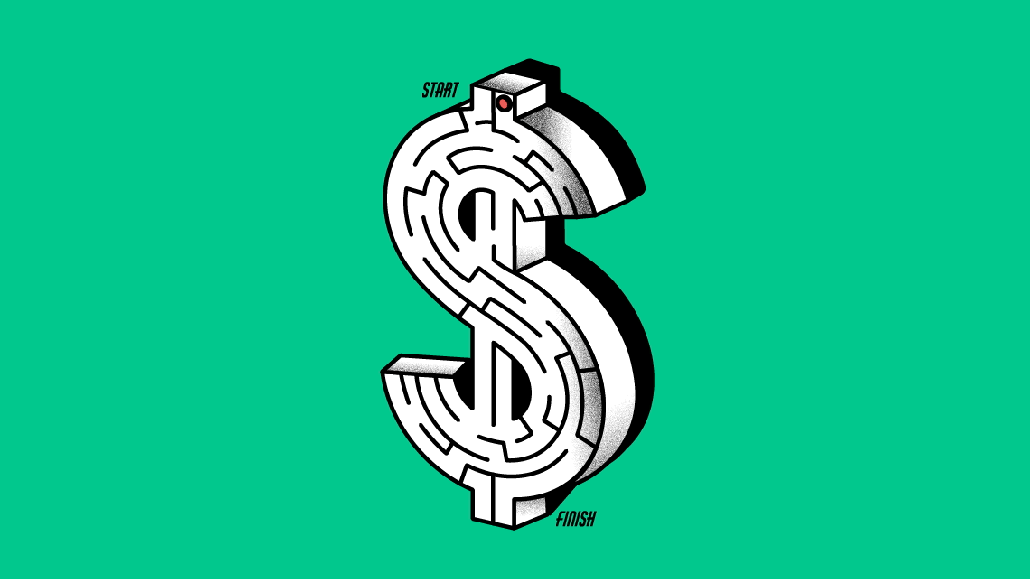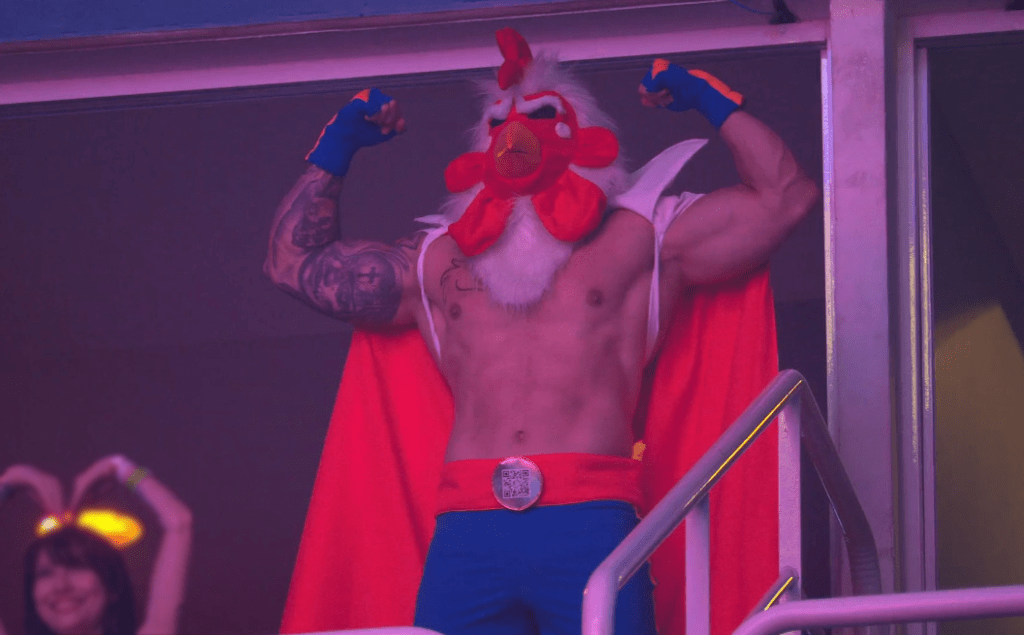Secure your place at the Digiday Media Buying Summit in Nashville, March 2-4
Why esports betting company Rivalry uses a chicken mascot to get higher in the pecking order among esports fans

The esports betting company Rivalry is developing original characters and IP to raise its profile among gamers and esports fans. Instead of working directly with esports leagues or teams, Rivalry is using a guerrilla marketing approach to organically insert its mascots into esports broadcasts and live events, increasing engagement and activity around its social accounts and esports betting platform.

Since last year, Rivalry has sent actors dressed up as original character mascots into the stands at major esports events. Its most frequently used character is “the chicken” — a buff, vuvuzela-wielding man dressed in a large chicken costume.
Since attending recent esports tournaments such as May’s BLAST Paris Major and June’s CBOLAO tournament in Brazil, the chicken has become a popular meme in the esports community. Twitch creators co-streaming the events repeatedly and gleefully called out the chicken, which was then turned into a fan-made in-game sticker in the “Counter-Strike” game and even featured in multiple tweets by the official BLAST account.
Rivalry representatives declined to attribute specific channel growth metrics to the chicken, but noted that engagement has increased by 12 percent month-to-month across Rivalry’s Brazilian Twitter and Instagram accounts following the chicken’s presence at CBOLAO. Across its appearances on numerous recent event broadcasts and social content, Rivalry estimated that the chicken has already collected several million impressions. The best part? All of this attention barely cost a cent for Rivalry.
“That was all completely organic; this entire thing costs us nothing,” said Rivalry CEO Steven Salz. “In Latin America, this chicken has become a known thing, where we send this guy to any ‘CS:GO’-related thing in the region, and people go crazy.”
When Rivalry signed a contract with the popular Brazilian creator collective Tribo in May, it featured the chicken in its announcement video.
Although Rivalry believes the chicken’s popularity has raised gamers’ awareness of its offerings, some esports fans are fans of the chicken in its own right, without even connecting it to the Rivalry brand. Vladislav Zvonkikh, the artist who designed the chicken’s in-game sticker, was not familiar with Rivalry when reached for comment by Digiday.
“My friend shouted at me, ‘dude, you have to draw it! It will be a great sticker for the game,’” Zvonkikh said. “For me, this guy with the head of a chicken was one of the highlights of the match.”
Zvonkikh’s lack of familiarity with Rivalry — in spite of his clear enjoyment of the chicken — shows one potential area in which Rivalry’s original-IP strategy could be improved. The chicken himself has ample fans, but the pipeline to get those fans over to Rivalry could be improved.
“You want to keep the integrity and the excitement of the chicken suit, and you don’t want to just state ‘Rivalry’ all over,” said Jamie Wootton, head of esports at the marketing agency AFK, who was in the stands during the chicken’s invasion of the BLAST Paris Major. “But I don’t think it would have completely crushed the authenticity if he had ‘Rivalry’ somewhere on him.”
Still, by investing in original characters and IP to promote its product instead of following a more traditional marketing strategy, Rivalry is signaling its native understanding of gaming and esports fandom — and its enjoyment of the ridiculous. So far, it’s been an effective — and cost-effective — way to reach the esports audience.
“Esports fans, more than most, like engaging in stories and personalities — you see that in the rise of influencer marketing over the last 10 or so years,” Wootton said. “Fans buy into those storylines and that sense of community, and I think they definitely respond to that better than the traditional sponsorships.”
More in Marketing

Future of Marketing Briefing: AI’s branding problem is why marketers keep it off the label
The reputational downside is clearer than the branding upside, which makes discretion the safer strategy.

While holdcos build ‘death stars of content,’ indie creative agencies take alternative routes
Indie agencies and the holding company sector were once bound together. The Super Bowl and WPP’s latest remodeling plans show they’re heading in different directions.

How Boll & Branch leverages AI for operational and creative tasks
Boll & Branch first and foremost uses AI to manage workflows across teams.








